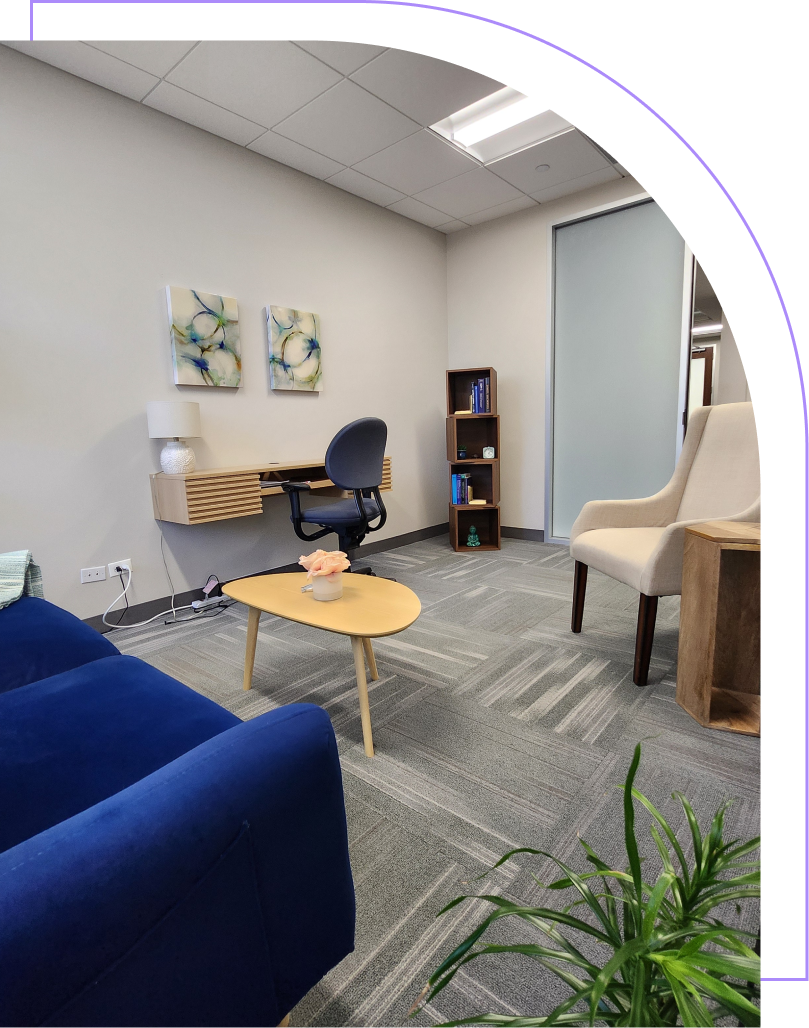
Are past traumas or distressing memories continuing to affect your daily life?
You’re not alone — and neither are you in wanting relief and healing.
Trauma, whether from a single event or repeated experiences, can leave lingering emotional, physical, and psychological impacts. You may notice flashbacks, nightmares, anxiety, depression, or difficulty trusting yourself or others. These reactions are natural, but they can make daily life, relationships, and work feel overwhelming.
Sometimes it feels like no matter what you do, memories and emotions keep resurfacing. You may experience heightened stress responses, avoidance, or difficulty concentrating. These responses are common among trauma survivors, and seeking support doesn’t mean you’re weak — it means you’re ready to heal, regain control, and reduce the power of past experiences over your present life.
At Aram Connection Counseling, we provide a safe, supportive space where clients can process traumatic memories with guidance and care. Eye Movement Desensitization and Reprocessing (EMDR) is an evidence-based therapy that helps the brain reprocess distressing memories, reducing their emotional impact and allowing for healthier coping. Therapy isn’t about reliving trauma unnecessarily — it’s about transforming painful memories into experiences that no longer control your emotions or behaviors.
Many individuals turn to EMDR for help with challenges such as:
EMDR therapy helps clients process these challenges, fostering healing and emotional balance.
How Aram Connection Supports EMDR Clients
Our therapists provide structured, trauma-focused support to help clients process memories and reduce distress. EMDR therapy can help you:
- Process traumatic experiences safely and effectively
- Reduce the intensity of distressing memories
- Improve emotional regulation and coping strategies
- Rebuild confidence, trust, and self-esteem
- Move forward with a greater sense of control and well-being
EMDR therapy equips clients with tools and strategies to process trauma and reclaim their lives.
Can we help?
What to Expect in EMDR Therapy
Our approach is collaborative, structured, and trauma-informed. EMDR combines guided eye movements with cognitive processing to help clients reprocess distressing memories. In sessions, clients learn to:
Safely recall and process traumatic experiences
Reduce emotional and physiological responses to triggers
Challenge negative beliefs linked to trauma
Build coping strategies and emotional resilience
Integrate new perspectives for lasting change
Each session helps clients process trauma, reduce distress, and regain control over thoughts, emotions, and behaviors.
Real-Life Examples
Imagine someone struggling with flashbacks from a car accident. EMDR helps them process the memory, reducing fear and anxiety, so daily activities feel safer and less stressful.
Or consider a survivor of past abuse who experiences emotional triggers in relationships. EMDR provides tools to process these memories, improve emotional regulation, and engage more fully in life.
EMDR empowers clients to transform the impact of past trauma, building resilience and hope for the future.
A Safe Space for Clients
We provide a calm, confidential, judgment-free environment — in-person or online — where clients can process trauma safely. Here, you can explore memories and emotions at your own pace, knowing you are supported throughout the process.
EMDR therapy offers a safe, structured space to process traumatic memories, reduce distress, and foster emotional healing.
Taking the First Step Toward Healing
You don’t have to wait until things feel “bad enough” to ask for help. Sometimes, the most loving step is reaching out early — before anxiety, flashbacks, or emotional distress take over.
Whether you need short-term support or ongoing guidance, we’re here to help you feel more grounded, empowered, and present.
Let’s talk about what’s been going on and how we can help you start feeling more like yourself again.


Supporting Your Recovery with EMDR
Therapists collaborate with clients to:
Our goal?
To help clients safely process trauma, reduce emotional distress, and develop strategies for resilience, confidence, and long-term well-being.
Ready to take the next step?
Sometimes the hardest part is getting started—but once you do, things begin to feel lighter.
